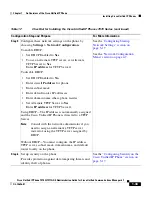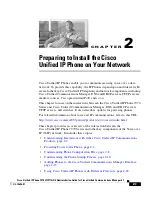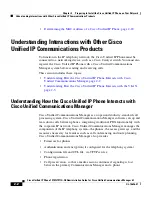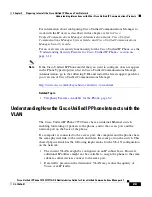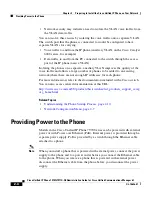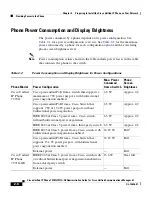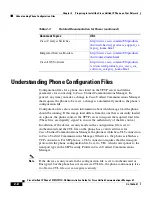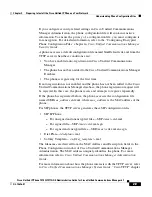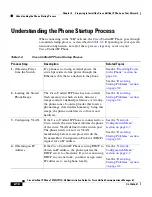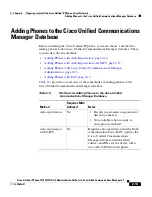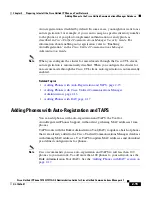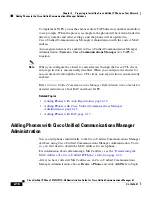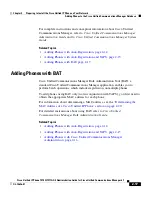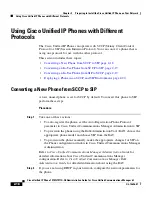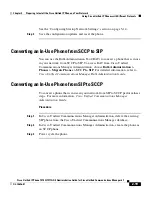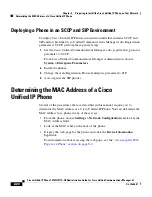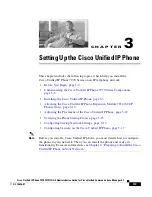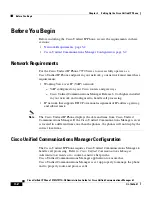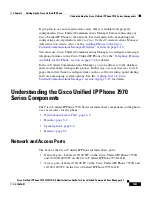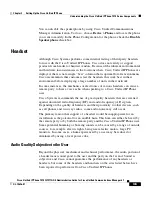
Chapter 2 Preparing to Install the Cisco Unified IP Phone on Your Network
Understanding the Phone Startup Process
2-12
Cisco Unified IP Phone 7970G/7971G-GE Administration Guide for Cisco Unified Communications Manager 6.1
OL-14626-01
7.
Requesting the
Configuration File.
The TFTP server has configuration files, which
define parameters for connecting to Cisco
Unified Communications Manager and other
information for the phone.
See the
“Understanding
Phone Configuration
Files” section on
page 2-8
.
See the
“Resolving
Startup Problems” section
on page 9-2
.
8.
Contacting Cisco
Unified
Communications
Manager.
The configuration file defines how the Cisco
Unified IP Phone communicates with Cisco
Unified Communications Manager and provides
a phone with its load ID. After obtaining the file
from the TFTP server, the phone attempts to
make a connection to the highest priority Cisco
Unified Communications Manager on the list. If
security is implemented, the phone makes a TLS
connection. Otherwise, it makes a non-secure
TCP connection.
If the phone was manually added to the
database, Cisco Unified Communications
Manager identifies the phone. If the phone was
not manually added to the database and
auto-registration is enabled in Cisco
Unified Communications Manager, the phone
attempts to auto-register itself in the Cisco
Unified Communications Manager database.
Note
Auto-registration is disabled when
security is enabled on Cisco
Unified Communications Manager. In
this case, the phone must be manually
added to the Cisco Unified
Communications Manager database.
See the
“Resolving
Startup Problems” section
on page 9-2
.
Table 2-4
Cisco Unified IP Phone Startup Process (continued)
Process Step
Description
Related Topics
Summary of Contents for 7970G - IP Phone VoIP
Page 4: ......


